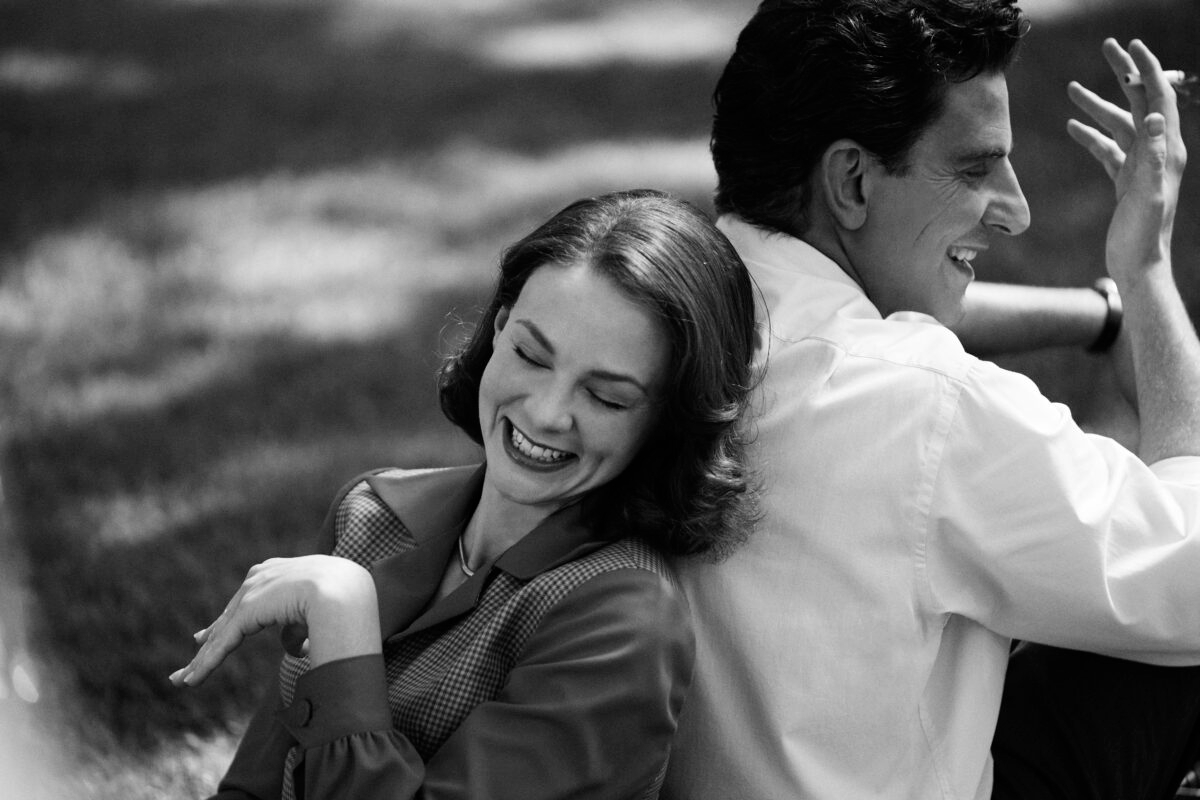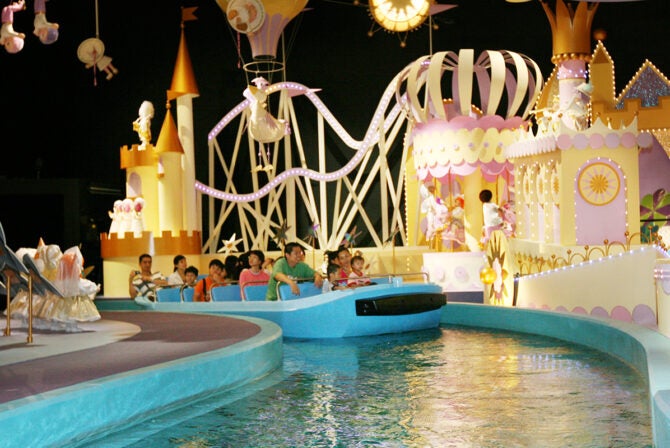I hate “Maestro” for making me think about noses so much.
Since the trailer for the biopic of legendary Jewish composer Leonard Bernstein was released on August 15, a certain picture of Cooper, with facial prosthetics lengthening his nose and chin, has made the rounds on Twitter, juxtaposed with a picture of the impossibly handsome young Leonard Bernstein (seriously, if I were a teen, I would put a poster of it on my wall and stare at it endlessly).
I’ve been staring at these pictures. And I’ve been staring at images of Cooper’s actual nose, which is not exactly tiny. I’ve tried to look at every angle of Bernstein himself. And I’m still left with a lot of questions.
Watching the trailer and looking at the schnoz from many angles and in different ages, I didn’t initially think it was that bad. I agreed with the writer Rachel Shukert, who posted that the real problem here is that “Lenny was hotter than Bradley Cooper. He was famously incredibly hot!”
The problem is that Lenny was hotter than Bradley Cooper. He was famously incredibly hot! https://t.co/lcxKQp7fpT
— Rachel Shukert (@RachelShukert) August 15, 2023
But I also didn’t think that, especially in a scene of Cooper portraying a young Bernstein (the movie will take viewers through many years of the composer’s life), Cooper’s altered nose looked particularly good. It’s more the Muppets’ Sammy Eagle than actual human being. Still, I didn’t immediately see it as a Jewish caricature, and I wasn’t positive this was a case of antisemitism.
As Jews, we have visceral reactions to antisemitic caricatures, for good reason. Exaggerating supposed “Jewish features” has been used as a visual aid in our prosecution for over half a millenia. These kind of images have been used to other us, to paint us into the image of money- and power- and even blood-thirsty villains.
That’s certainly not Cooper’s intention in this film. I’m sure he and everyone who worked on “Maestro” hold much reverence for Bernstein, who was not only a history-making composer and conductor, but a humanitarian and political activist. Yet it’s unclear how much Bernstein’s Jewish identity — which was both part of his formative years and influenced his oeuvre — will be featured in the film, and that to me is more concerning. If Cooper at once over-exaggerates Bernstein’s “Jewish nose” and whitewashes his Judaism, then I think this movie will truly incense me.
But I also understand those who are incensed already. Because seeing a non-Jew portraying a Jew through cheap cosplay is painful. Seeing the echoes of antisemitic caricatures of yore on a celebrated actor’s face is viscerally awful.
One thing is clear — the issue of authentic casting in “Maestro” is absolutely muddled, and it’s unclear how much it meant to Cooper, who directed and produced the film on top of starring in it. Carey Mulligan is cast as Bernstein’s wife Felicia Montealegre, who was half-American and half-Puerto Rican (and had a Jewish paternal grandfather, too). Other Jewish characters are played by non-Jews (Michael Urie, for example, plays “Fiddler” director Jerome Robbins) and prominent Jewish actors play decidedly non-Jewish roles.
Another thing that’s clear? This is the year, it seems, of the Jewish prosthetic. Because on top of Cooper’s beak, there’s the unrecognizable Helen Mirren starring as former Israeli prime minister Golda Meir in the upcoming film “Golda.”
Watching an early screening of “Golda,” I enjoyed Mirren’s accomplished performance. And I also couldn’t help but think — would I have enjoyed it even more if it were played by someone more informed by Golda’s lived experience? Someone who had the kind of grungy yiddishkeit that one associates with the gruff stateswoman? Someone, well, Jewish?
Acting is acting, of course. We are privileged to have the Mirrens and the Coopers of the world, with their dedication to their craft and meteoric talent — and perhaps, even more relevant to these conversations, the huge budgets that these names bring to their films.
But recently, I watched yet another film, “Simone: Woman of the Century,” which is coming out in select theaters this weekend. In the movie, Elsa Zylberstein, one of the most magnetic and renowned actresses in France, plays French-Jewish politician Simone Veil. Zylberstein wore heavy facial prosthetics to play the French icon who helped legalize abortion in the country — in order to portray her in middle and old age. And yet, that portrayal felt so different from these others. Zylberstein the daughter of a man who survived the Holocaust in hiding; Veil was a survivor of Auschwitz. Zylberstein and Veil actually met at an event to honor the memory of the Holocaust; they were tied through powerful, immutable bonds.
“Simone” is more than a big name behind a high-grossing film — it was a calling for Zylberstein, who wants to help spread Holocaust awareness and Veil’s political message of anti-racism. I didn’t think for a moment while watching the film that anyone could’ve played that role better than her.
So yes, there’s absolutely a marked difference between a Jewish person putting on facial prosthetics to play a historical character, and a non-Jew doing it. It’s like that thing where Jews get to make Holocaust or antisemitism jokes, but non-Jews don’t. For Jewish actors, the mask is more forgiving, less cosplay and misdirection, more an extension of ourselves.
For non-Jewish actors, it doesn’t exactly pass the smell test.








